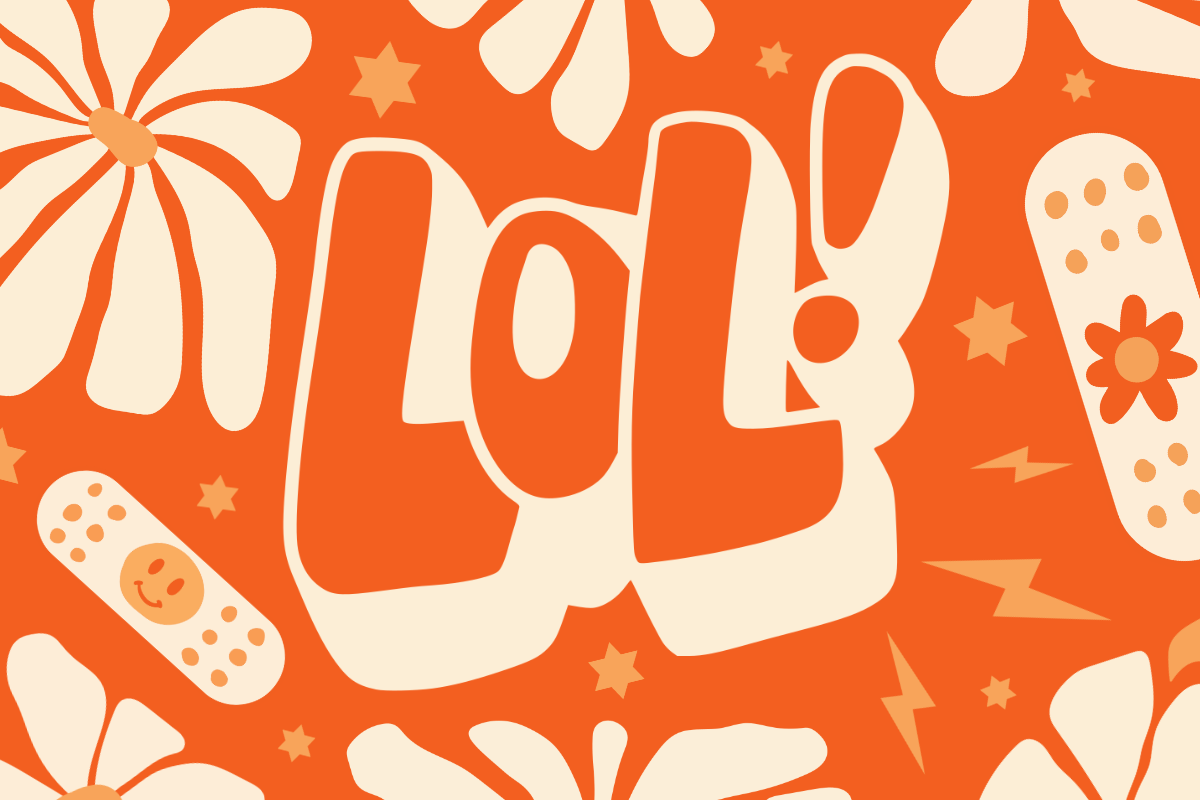Trigger warning: discussion of sexual abuse
I write about healing from childhood sexual abuse and most people, understandably, assume it’s a stone-cold bummer. I get it. But living with this trauma for seven years, I’m here to tell you, it’s funnier than you’d think. I have to stop and thank my Jewish family and ancestors for teaching me how to find humor in the pain.
Back in 2016, I wanted a place on the internet where I could talk about what it was like being a 20-something person trying to have a full life, including a great sex life, meaningful friendships, and the love I desired, while also contending with the reality that my childhood sexual abuse was impacting every single part of my life. The only options at the time were websites written by clinicians that made me feel like a traumatized lab rat they were studying, or blogs from other survivors that had a lot of stock photos of shattered glass, wilting flowers and rain clouds. I appreciate anyone who finds healing and community in those options, but they just weren’t for me.
I wanted to talk to people about what it’s like to live with trauma, to navigate flashbacks and nightmares, to decide if or when to tell a partner about my history of abuse, and do it all in the same language and style that I use in every other aspect of my life. So, I started my own website, called Healing Honestly, and filled it with “Golden Girls” memes, sarcastic asides, pop culture references and moments of levity because, in my life and in my people, we use humor to cope with unimaginable suffering. While we’ve only been doing it for a mere 5,000 years or so, I think it’s safe to say it does help.
Let me be clear: I don’t think what happened to me — and to one in four girls and one in six boys — is funny. It’s horrifying. Being sexually abused as a child, most often by the people closest to us, is not the stuff of a classic punchline.
But living in the world as a trauma survivor is an absolutely absurd experience. As survivors, we can, at any point, involuntarily time-travel back to the very worst moments of our lives and relive them over and over again. It’s like the worst party trick ever. And laughing about that in order to keep any threads of my sanity intact is something I learned from my fellow Jewish people.
My family are the funniest people I know. My favorite memories of my childhood are sitting around my grandparents’ table in Omaha with all my extended family, eating blintzes and bagels, just waiting for the inevitable moment when my mom and her sister start laughing so hard that tears stream down their faces.
But things weren’t always funny. Through unimaginable sickness and loss, we came together and told stories. Sitting shiva and remembering the past together, we’d revisit old tales that we had heard millions of times, with each of us knowing the rise, the fall and the punchline by heart. Sometimes we laughed because it was humorous, but in the darkness, we often laughed because, for a brief moment, it temporarily broke down each person’s walls of grief that kept them isolated in their pain. Laughing, especially when grieving, reminded me that I was still deeply connected to the people around me and, despite the incredible pain, was very much still alive.
A moment that encapsulates the cathartic humor I learned from my family was one of my last visits with my grandfather. I asked him to teach me a new Yiddish term. I wanted to know something I didn’t before, anything, really. Of all the things, in that beautiful colorful language, he chose to teach me this: “Gay kaken ofn yahm!” which translates into, “Go shit in the ocean!” It was our last time that we were ever really together, and he used that time brilliantly — to teach me the greatest curse in the history of language. Because, sometimes, when life is so heavy, that’s all that’s left to say.
I’ve carried the lessons from my beautiful Nebraskan Jewish family through all of my work to build community among childhood sexual abuse survivors, including in my new book, “Healing Honestly: The Messy and Magnificent Path to Overcoming Self-Blame and Self-Shame,” the first published survivor-to-survivor guide for healing from childhood sexual abuse since 1988. I write for my readers the same way I talk to my family: with jokes, with real talk, with colorful cursing. It’s a powerful way of destigmatizing the subject matter. And I’ve received countless messages from people that the jokes and gifs help them feel like talking about their trauma is more approachable and not so damn scary.
Not only does the Jewish tradition of finding humor in the suffering cultivate resilience and community, but it also helps us to call bullshit on the systems of power that oppress us. Sexual violence survivors have dealt with the impacts of trauma on our minds and bodies, all while living in a world that conditions us to believe that our abuse was our fault and we should feel shame. In the words of the great Abbi Jacobson in an episode of “Broad City” where she switches places with Ilana to work her food co-op hours, “Rape culture SUCKS.” And sometimes sending a gif of Abbi saying just that to another survivor is the most effective way of acknowledging that the hot garbage they’re experiencing isn’t their fault.
I thank my Jewish family — and all the ancestors who came before me — who taught me the importance of having some good nosh to soothe the soul, the power of excellent storytelling and, most of all, how, in the depths of darkness, a well-timed joke can connect us to each other and our own humanity.



